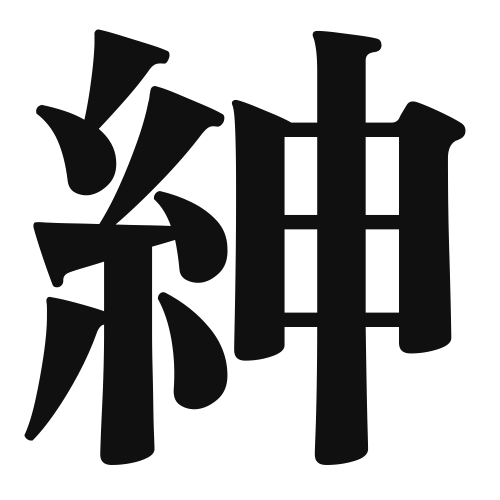1. Overview of Meaning
The kanji “紳” (shin) generally means “gentleman” or “nobleman.” It conveys a sense of refinement, elegance, and social status, often associated with a well-mannered and cultured individual.
2. Formation and Radical
Formation of the Kanji: The kanji “紳” is a phonetic compound (形声文字) that combines the radical for “silk” (糸) with a phonetic component that suggests its pronunciation.
Radical: The radical of “紳” is 糸 (ito), which relates to threads or textiles, reflecting the kanji’s association with clothing and social status.
3. Examples of Usage
Common Words and Phrases:
- 紳士 (しんし, shinshi) – gentleman
- 紳士服 (しんしふく, shinshi fuku) – formal wear
Example Sentence in Daily Conversation:
彼は本当に紳士ですね。 (かれはほんとうにしんしですね。) – “He is truly a gentleman.”
4. Synonyms and Antonyms
Similar Kanji:
- 貴族 (きぞく, kizoku) – aristocrat; while both terms imply high social status, “紳” emphasizes gentlemanly qualities, whereas “貴族” refers more broadly to nobility.
Antonyms:
- 野蛮 (やばん, yaban) – barbaric; this term represents the opposite of refinement and cultured behavior.
5. Cultural and Historical Background
Relation to Japanese Culture: The concept of a “紳士” is deeply rooted in Japanese culture, where manners and social etiquette are highly valued. The term is often used to describe someone who embodies these qualities.
Proverbs and Idioms: One relevant saying is “紳士の振る舞い” (しんしのふるまい, shinshi no furumai), which means “the behavior of a gentleman,” highlighting the importance of conduct in social interactions.
